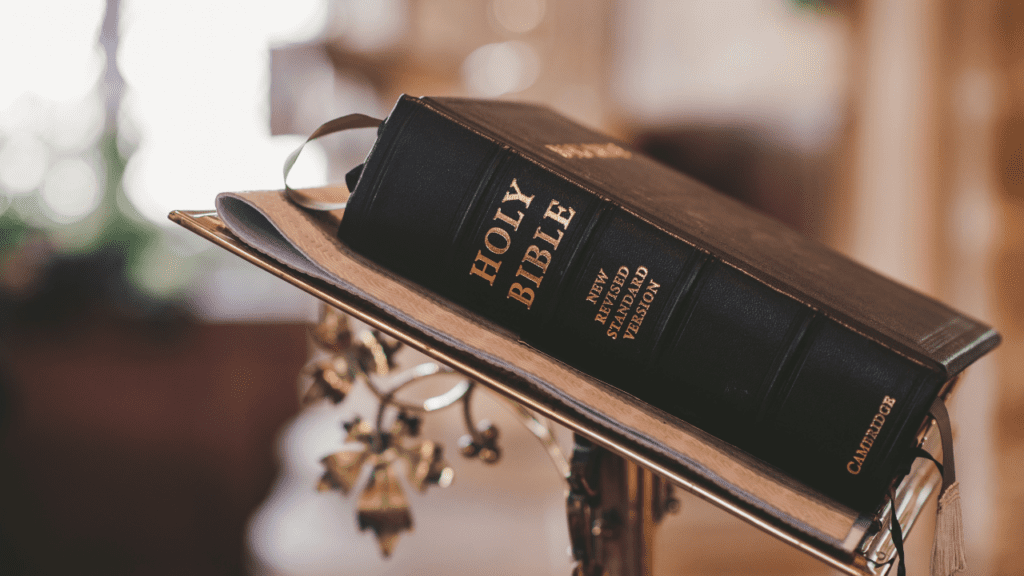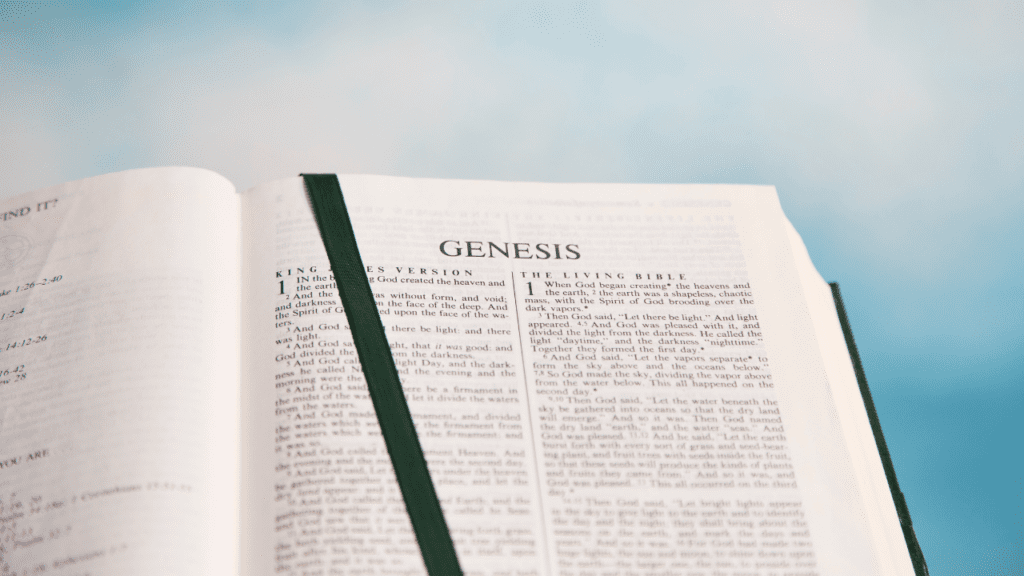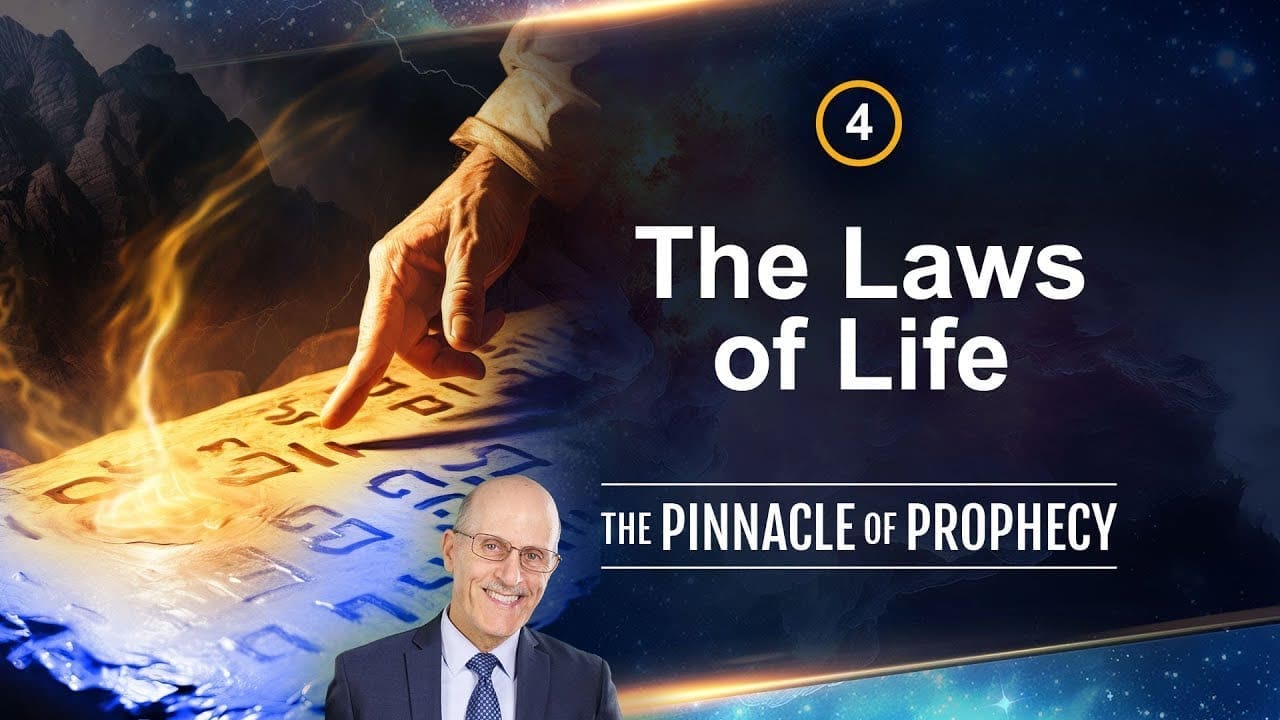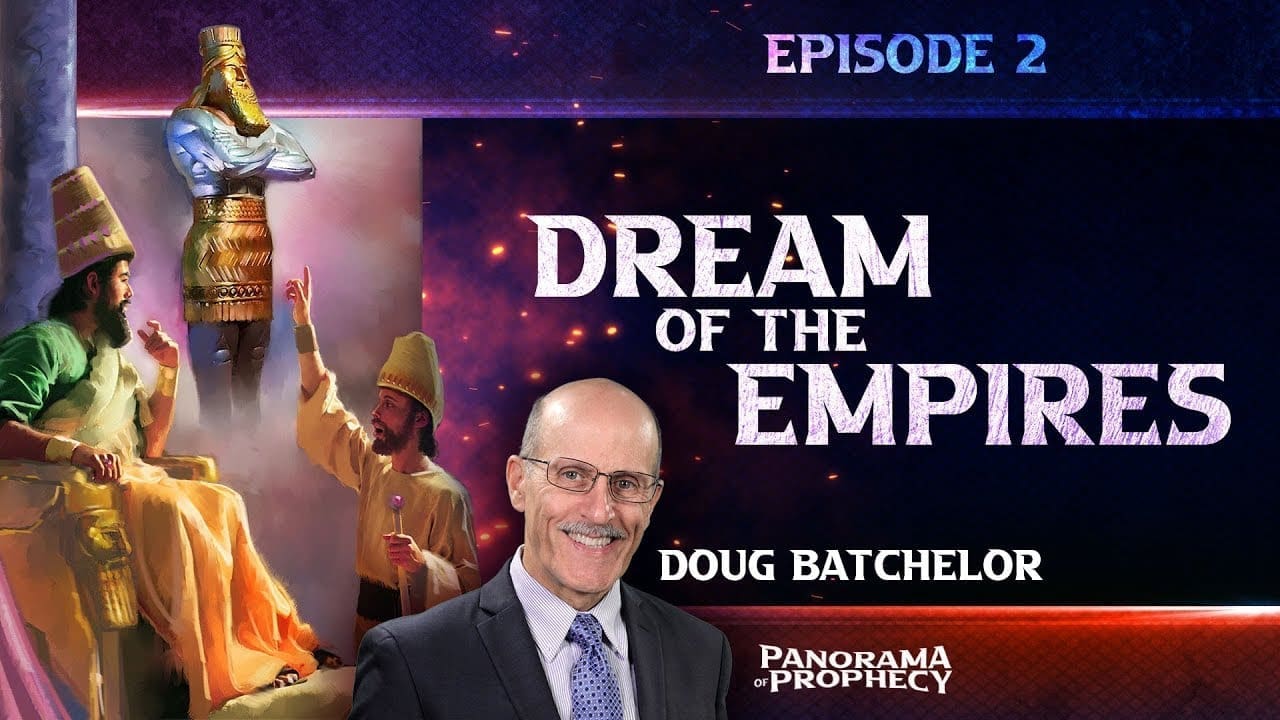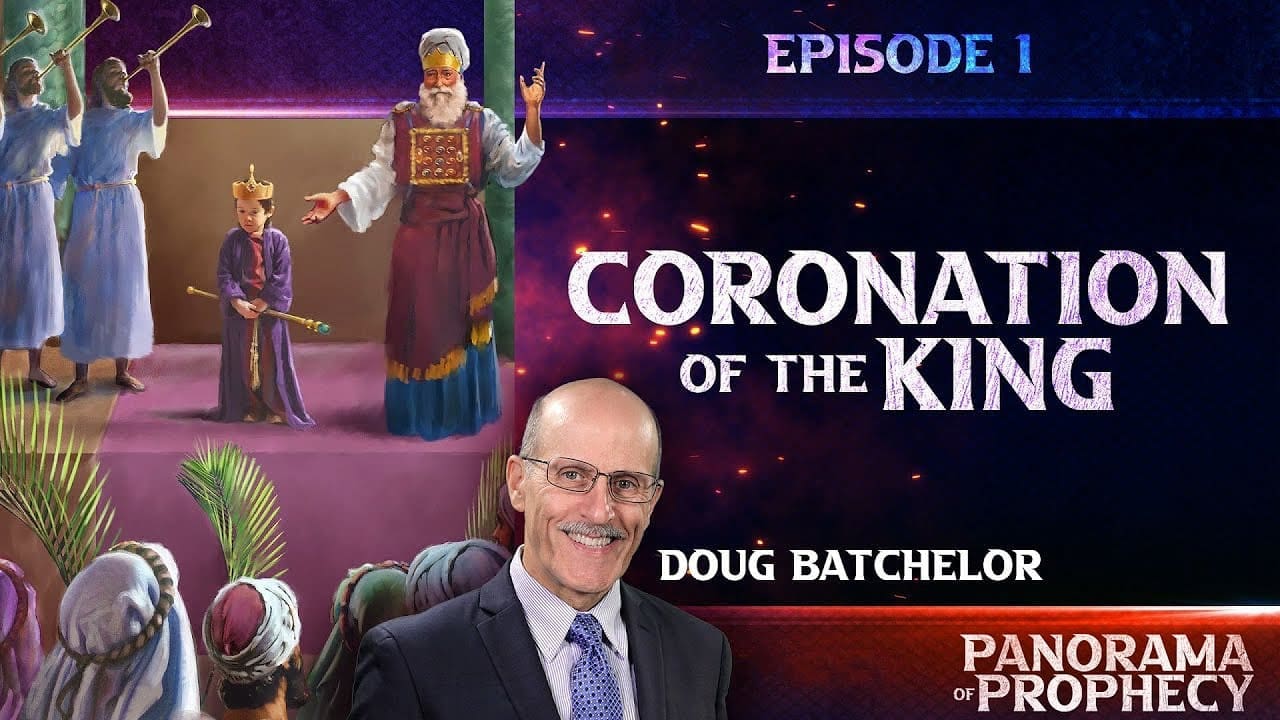By Danny Shelton
The purpose of this book is to find out from the Scriptures, ‘Is there a forgotten commandment?’ If there is, then these questions need to be asked, ‘Which one is it?’ and ‘Should those of us who claim to be Christians be keeping this commandment?’
God gave Moses the Ten Commandments, yet most Christians today obey just nine. Why? Let’s first read the Ten Commandments from the King James Version of the Bible:
I am the Lord thy God, which have brought thee out of the land of Egypt, out of the house of bondage. Thou shalt have no other gods before me.
Thou shalt not make unto thee any graven image, or any likeness of anything that is in heaven above, or that is in the earth beneath, or that is in the water under the earth. Thou shalt not bow down thyself to them, nor serve them: for I the Lord thy God am a jealous God, visiting the iniquity of the fathers upon the children unto the third and fourth generation of them that hate me; and showing mercy unto thousands of them that love me, and keep my commandments.
Thou shalt not take the name of the Lord thy God in vain; for the Lord will not hold him guiltless that taketh his name in vain.
Remember the sabbath day, to keep it holy. Six days shalt thou labour and do all thy work: but the seventh day is the sabbath of the Lord thy God: in it thou shalt not do any work, thou, nor thy son, nor thy daughter, thy manservant, nor thy maidservant, nor thy cattle, nor thy stranger that is within thy gates: For in six days the Lord made heaven and earth, the sea, and all that in them is, and rested the seventh day: wherefore the Lord blessed the sabbath day, and hallowed it.
Honour thy father and thy mother: that thy days may be long upon the land which the Lord thy God giveth thee.
Thou shalt not kill.
Thou shalt not commit adultery.
Thou shalt not steal.
Thou shalt not bear false witness against thy neighbour.
Thou shalt not covet thy neighbour’s house, thou shalt not covet thy neighbour’s wife, nor his manservant, nor his maidservant, nor his ox, nor his ass, nor anything that is thy neighbour’s (Exodus 20:3-17).
In examining these texts, we find that according to the fourth commandment, God set aside, or made holy, the seventh day of the week – the day we call Saturday. In fact, Genesis 2:2 says that at creation God ‘rested on the seventh day from all his work which he had made.’ Now, from everything I’ve ever learned about God or even heard about Him, nothing even remotely suggests that He gets tired! He must have rested for a reason, as an example to us. We find right in the middle of the fourth commandment, God’s instruction to us to keep holy the seventh day of the week, to worship Him on that day and to rest from our regular work. The fourth commandment leaves no question about it, we are to obey Him in this matter just as much as we are to obey Him in the other nine commandments.
Can we be sure which day of the week is the seventh day?
The big question we might have after reading the fourth commandment is: ‘Which day of the week is the seventh day?’ Is Saturday really the seventh day of the week? How do we know? Maybe our calendars are all wrong. Maybe time has been lost or gained. I’ve heard that many calendars in Europe today say that Monday is the first day of the week, making Sunday the seventh day. Let’s examine these questions. First of all, let’s see what the United States Naval Observatory in Washington, D.C. has to say about this matter of time being lost or gained. In a letter dated March 12, 1932, the director, James Robertson, stated:
. . .We have had occasion to investigate the results of the works of specialists in chronology and we have never found one of them that has ever had the slightest doubt about the continuity of the weekly cycle since long before the Christian era. . . . There has been no change in our calendar in past centuries that has affected in any way the cycle of the week. . . .
As you can see, according to this source, the weekly cycle is still the same as it was 2,000 years ago when Christ walked the earth. Also, from Scripture we can see that Jesus had no trouble knowing which day of the week was the seventh day – the day for weekly worship. Luke 4:16 says, ‘As his custom was, he [Jesus] went into the synagogue on the sabbath day.’ The whole Jewish world in Jesus’ day kept holy God’s seventh-day Sabbath. In fact, the Jews have continuously kept the seventh-day Sabbath.
If we question whether Saturday is really the seventh day of the week, the Sabbath, we have to stretch our imaginations to decide that all the Jewish people around the world could have somehow gotten the days mixed up in the weekly cycle since Jesus was on earth. And if this were so, then Jews in different places around the world would probably be keeping any number of different days. Instead, we see them unified all over the earth on the matter of which day of the week is the seventh day Sabbath.
We have Bible evidence, too, that Saturday is the seventh day of the week, God’s holy Sabbath. Luke 23:54 says that the day Jesus died ‘was the preparation, and the sabbath drew on.’ Then Luke 24:1 says that the day Jesus rose from the grave was ‘the first day of the week.’ So from the Bible we have this three-day sequence: the day before the Sabbath (the day Jesus died), the Sabbath, and the first day of the week (the day Jesus rose from the dead). All the world recognizes Good Friday as the day Jesus died. All the world recognizes Easter Sunday as the day He rose to life. And the day between Friday and Sunday is which day? Saturday. And the New Testament calls this day ‘the sabbath’ (Luke 23:54). I believe we have enough information available to us to know without a doubt that the Saturday of today is the same day that the Bible calls the seventh day of the week, God’s holy Sabbath.
It is also interesting to note that the cycles of time marked on earth are determined by astronomy. A day is measured by how long it takes the earth to rotate, a month is determined by the cycle of the moon, and a year is measured by how long the earth takes to revolve around the sun. Only the weekly cycle has no anchor in astronomical time. That traditional measurement of time can only be traced back to God’s creation when the seventh day was set aside as the Sabbath.
Is the Sabbath still part of God’s will for Christians?
Now I think it would be timely here to look at why God commanded His children to keep holy the seventh day of the week. Why did God place such a seemingly unimportant matter right in the heart of the Ten Commandments? And further, why is the fourth commandment the only one of the ten to begin with the word, ‘Remember’? If God were going to change or do away with the fourth commandment at a later date, as many Christians believe He did, would it make sense for Him to begin the fourth commandment by saying, ‘Remember’? In fact, it would seem that the other nine commandments should have started with the word ‘Remember’ even more so than the fourth since most Christians agree that these nine are still binding today and will be binding throughout all eternity, while they feel that the fourth commandment was done away with. The word ‘Remember’ tells us that God knew people were going to have trouble with that commandment that they would be tempted to forget it.
God says that the Sabbath is a ‘perpetual covenant’ and that it is ‘a sign between me and the children of Israel for ever’ (Exodus 31:16, 17). How, then, can some Christians today say that the Ten Commandments were part of the old covenant and no longer valid for God’s people?
It reminds me of the time when my family and I sang one Sunday morning at a big, popular, Sunday-keeping church in Tennessee. After the service, the pastor came to me and said, ‘Someone just told me that you’re a Seventh-day Adventist. Is that true?’
‘ Yes,’ I replied.
The pastor continued, ‘Do you mean to tell me that you live under that old covenant? I’m glad to say that I’m not under that old law any more; I’m under grace!’
I remember looking at him and saying, ‘OK, that sounds good to me. You’ve convinced me.’ Then I picked up the Sunday offering plates that were close by and began to leave.
‘Oh, excuse me, Brother Shelton,’ the pastor said, ‘but that’s not your offering! That’s the church’s offering. We’ll send you a check for your part.’
‘No,’ I replied. “I’ll just take all of it.”
As I started out to my van, the pastor quickly followed to let me know again that this was his church’s offering – not mine.
‘I understand,’ I assured him. ‘But if the Ten Commandments were done away with at the Cross, then I’m not really stealing your money because there isn’t anything now that tells me it’s wrong to take something that doesn’t belong to me!’
As I handed back the offering plates, the pastor understood my point and had to reconsider his idea of not being ‘under the old law.’ Let’s look now at the Bible definition of sin. ‘Sin is the transgression of the law’ (1 John 3:4). This is one of the easiest texts to understand in the whole Bible. If there were no law, there could not be any sin.
Did Jesus’ death on Calvary nail the Ten Commandments to the cross?
Again, let’s see what the Bible has to say on this subject. Jesus said, ‘Think not that I am come to destroy the law, or the prophets: I am not come to destroy, but to fulfil’ (Matthew 5:17). It’s amazing that so many people, including many Bible scholars, try to make this verse say something that it just doesn’t say! You cannot make this scripture say that Jesus’ death on the cross did away with the Ten Commandment law. No. Jesus says, ‘I am not come to destroy, but to fulfil [or make complete].’
Now Jesus did do away with the ceremonial laws when He died. Paul says that Jesus was ‘blotting out the handwriting of ordinances that was against us, which was contrary to us, and took it out of the way, nailing it to his cross’ (Colossians 2:14). How beautiful to know that the death of Jesus means we no longer have to look at the blood of lambs, the table of stone, or try to be perfect by our own works! Now that Jesus has taken our sins on Himself at the cross of Calvary, His righteousness atones for our sins if we simply confess that we are sinners and ask for His forgiveness. The Bible says that ‘all have sinned, and come short of the glory of God’ (Romans 3:23). It also says that ‘if we confess our sins, he is faithful and just to forgive us our sins, and to cleanse us from all unrighteousness’ (1 John 1:9).
Now let’s see what actually is going on when a pastor makes an altar call. What is his intention? Whether he is a Baptist, Presbyterian, Pentecostal, Methodist, or whatever, his intention is to get one to confess his sins to God and then ask Jesus into his heart so that he might be ‘saved.’ Are you starting to get the point? If God’s law was nailed to the cross, then there really is no need to encourage someone to ask for forgiveness because there is no longer any sin to be forgiven.
Why? Remember the Bible definition of sin is ‘transgression of the law’ (1 John 4:3). Follow this line of thinking now. If there is no more law, then there is no more sin. And if there is no more sin, then there is no reason to repent of our sins. If there is no reason to repent of our sins, then there is no need for a Savior. And if there is no need for a Savior, then there is no need for pastors. And if there is no need for pastors, then there is no need for churches, and so on and so on. Now that’s deep! Think about it for a moment, and go back and re-read that paragraph and let it soak in for a bit.
By now, you are probably beginning to ask, ‘Since the Bible is so clear that the Ten Commandments are still valid today, then why do so many churches try to explain them away?’
Again, the answer is very simple. If we acknowledge that the Ten Commandment law of God, the Decalogue, is still valid today, then we have to accept and keep the fourth commandment, recognizing that Saturday, the seventh day of the week, is the Sabbath that God, the Creator of the universe, blessed, set apart, sanctified, and made holy as His day of worship.
Who dares separate what God has joined together? (see Matthew 19:6). Whether it be marriage (which is what Matthew 19:6 is talking about) or the only thing God ever wrote with His own finger in stone, His Ten Commandments, we are warned not to try to separate what God has joined together. Yet Christians everywhere would have us believe that only nine commandments are valid today. They believe it is wrong to kill, commit adultery, lie, steal, but insist that the fourth commandment, containing the seventh-day Sabbath, has been separated from the other nine and nailed to Jesus’ cross.
Actually, there are some interesting comparisons between marriage and the Sabbath. Both were instituted by God in Eden during Creation week. God sanctified both marriage and His holy Sabbath day. And just as no one can separate a husband and wife united in holy matrimony, neither can one separate God’s fourth commandment from the rest. Both marriage and the Sabbath are founded on the same principle, the blessing and authority of the Creator who gave both institutions to humanity.
I have found that no matter what subject I’m dealing with in life, I always make the best decisions when I base them on principle. What do I mean by ‘principle’? Operating on the basis of principle means not getting caught up in feelings, sensations, emotions, wants, or desires. It means basing my life on what is right and what is wrong according to God’s Word.
Let me give you an example. Many Christians say that God is not particular about which day a person keeps as the Sabbath, even though God has specifically designated the seventh day of the week as the day of worship. Let’s compare that same principle to the idea of marriage and see how it turns out. Suppose you have gone to prayer meeting one evening, and after the service is over, you look for your spouse. He or she happens to be standing next to six friends. You say, ‘Honey, it’s time to go home, but tonight I think I’ll take one of your six friends home with me to spend the night with me in our bed. I know we’re married and that our marriage has been sanctified by God, but since you are there with six of your friends, I don’t think it really matters to you which of them I sleep with, just as long as it’s one of them!’
I think you get the point. If you want to stay married, I wouldn’t encourage you to try something this foolish! In the first place, you wouldn’t even want to do this because you love your spouse. Secondly, you know, according to God’s Word, that sleeping with someone other than your spouse is sin. You would be breaking the seventh commandment, the one that says, ‘Thou shalt not commit adultery’ (Exodus 20:14).
In the same sense, we are committing spiritual adultery by willfully breaking God’s fourth commandment and keeping another day that has not been instituted or sanctified or made holy by God. God says, ‘I the Lord thy God am a jealous God’ (Exodus 20:5).
A look at some puzzling texts
Although there are no texts in the Bible showing that God changed the Sabbath day, there are a few texts we want to look at that on the surface may seem confusing. We know that the Bible was written under the inspiration of God and never contradicts itself, ‘All scripture is given by inspiration of God’ (2 Timothy 3:16). But some texts have confused some sincere Christians as they studied this matter of the Sabbath.
For example, in Colossians 2:13, 14 the apostle Paul says of Jesus:
And you, being dead in your sins. . . hath he [Jesus] quickened [made alive] together with him, having forgiven you all your trespasses; blotting out the handwriting of ordinances that was against us, which was contrary to us, and took it out of the way, nailing it to his cross.
Many Christians point to this text as evidence that God’s Ten Commandment law was nailed to Jesus’ cross and came to an end at that time. But we have already seen that God’s Ten Commandment law will last for eternity. So what law is Paul talking about? What law was nailed to Jesus’ cross?
The next few verses help us to answer that question:
Let no man therefore judge you in meat, or in drink, or in respect of an holy day, or of the new moon, or of the sabbath days: which are a shadow of things to come, but the body is of Christ (verses 16, 17).
So the laws, or ordinances, that Paul says were nailed to Jesus’ cross were those that foreshadowed the work that Jesus would do when He came to live on earth, His sacrifice as the Lamb of God. These, Paul goes on to say, are the ceremonial laws God gave His people in the Old Testament dealing with meat and drink offerings, new moon festivals, and ceremonial ‘sabbath days’ such as the Day of Atonement, Pentecost, Feast of Tabernacles. (see Leviticus 23:4-38). In fact, Leviticus 23:39, specifically shows that these ceremonial ‘sabbaths’ (which could fall on any day of the week in different years) are distinct from the weekly seventh-day Sabbath of the fourth commandment.
Another text that has puzzled some Christians is 1 Corinthians 16:1, 2. Paul wrote to the Christians at Corinth:
Now concerning the collection for the saints, as I have given order to the churches in Galatia, even so do ye. Upon the first day of the week let every one of you lay by him in store, as God hath prospered him, that there be no gatherings when I come.
Some have thought Paul was talking about taking up offerings in church on the first day of the week and that this text, then, showed that Christians in Paul’s day were worshiping on Sunday, the first day of the week. But if you read the text carefully, it becomes clear that Paul was telling the believers at Corinth to figure up at home on Sunday what they can give to the collection he is gathering for the believers in Jerusalem. They were to ‘lay by. . . in store’ this offering so that it would be ready for Paul to pick up when he comes through Corinth on his way to Jerusalem. There is no hint here that God has changed the day of worship to Sunday.
Acts 20:7 is another text some people use to try to prove that the early Christian church worshiped on Sunday:
Upon the first day of the week, when the disciples were come together to break bread, Paul preached unto them, ready to depart on the morrow.
Again, if you read the entire passage, you discover that this was a special meeting that had been called because Paul was passing through the area and wanted to see the believers he had brought to Jesus on his earlier missionary journeys. Some have said that they were holding a Communion service because it said they ‘were come together to break bread.’ Most likely it was a common meal, and at any rate, Acts 2:46 says that the early Christian believers broke bread together ‘daily.’ Once more, we find no hint of Sunday sacredness in the early Christian church.
Why do most Christians today ignore the seventh-day Sabbath?
Now that we have shown from the Bible that God’s Ten Commandment law, including the fourth commandment, is still valid today, you may rightfully be wondering, ‘Why don’t most Christians, Protestant and Catholic, keep God’s holy seventh-day Sabbath?’
Before examining this question, I want to make it clear that I believe God has sincere followers in every church. We are not saved by the denominational name over the door of our church building. I believe God judges each believer’s heart individually. I love people of all faiths – or even no faith. Jesus says, ‘Love one another, as I have loved you’ (John 15:12). So when we are talking about God’s Sabbath, we have to deal with church doctrines and creeds and systems, in both Protestant and Catholic churches, but we are not judging individual hearts.
When we look at the fact that most Christian churches are not keeping God’s seventh-day Sabbath, the big question is: Why? This seems to be the only commandment of the ten that is under attack by Christian church organizations. There must be a reason. There must be something about the fourth commandment that Satan really hates. What is it? Let’s read the fourth commandment once again:
Remember the sabbath day, to keep it holy. Six days shalt thou labour and do all thy work: but the seventh day is the sabbath of the Lord thy God: in it thou shalt not do any work, thou, nor thy son, nor thy daughter, thy manservant, nor thy maidservant, nor thy cattle, nor thy stranger that is within thy gates: for in six days the Lord made heaven and earth, the sea, and all that in them is, and rested the seventh day: wherefore the Lord blessed the sabbath day, and hallowed it.
Notice that there is something very important contained in the fourth commandment that is not found in the other nine. The fourth commandment identifies who is the author of all ten of the commandments, the Lord who ‘made heaven and earth, the sea, and all that in them is.’ Now we know who it is who wrote the Ten Commandments. It is the Creator God, the God of the universe, the great I AM! Now follow closely with me for a minute. If we examine the Ten Commandments, we will find that they are divided into two parts. By obeying the first four commandments we show our love to God. When we obey the last six, we show our love for our fellow man. For example, we show our loyalty to God by not having any other gods before Him, by not bowing down to any other gods, and by not taking His name in vain. And when we keep the fourth commandment – the Sabbath commandment – we show our loyalty to the one and only Creator God.
The fourth commandment is the only one that tells us which God we serve, the God who ‘made heaven and earth, the sea, and all that in them is’ (Exodus 20:11). If we try to do away with the fourth commandment, we don’t even know what God we’re loyal to. I was in India some time ago and found out that there are millions of gods worshiped in that country. The God we serve created us; He’s our Creator. That fact more than any other distinguishes Him from all those man-made gods.
The last six of the Ten Commandments show our love for others. For example, if we don’t steal from our neighbor, if we don’t commit adultery with his wife, if we don’t lie about him, etc. we are demonstrating our love for our neighbor.
The fourth commandment, you see, contains the seal of God. Without the fourth commandment, we wouldn’t know who had written the other nine. Imagine for a moment that you read in the newspaper that the United States has just declared war on another country! The first question that would probably come to your mind would be, ‘Says who?’ After all, there are nearly 300,000,000 Americans. Any one of them could have declared war on another country, but that means nothing unless someone with the authority to do so actually declares war. The president of the United States is the only one who has the authority to sign a declaration of war after Congress has taken that step. His seal consists of several parts: (1) his name, George W. Bush; (2) his title, President; (3) his territory or domain, the United States of America. Be assured that if George W. Bush, president of the United States of America, signs a declaration of war, then America is indeed engaged in war!
Our Creator God has His seal contained in the fourth commandment: (1) His name, ‘the Lord thy God’; (2) His title, Creator; (3) His territory or domain, ‘heaven and earth, the sea and all that in them is.’
Remember, the Bible says that war broke out in heaven. ‘And there was war in heaven: Michael and his angels fought against the dragon; and the dragon fought and his angels, and prevailed not’ (Revelation 12:7, 8). Why did war break out in heaven? Because Satan was jealous of God. He said, ‘I will be like the most high’ (Isaiah 14:14). He was able to convince one-third of the angels to follow him (see Revelation 12:4).
The great controversy between Christ and Satan continues today, except that now Satan is working to get human beings to give their allegiance to him instead of God. Satan knows that he and his unholy angels are lost, but he wants to make a mockery of God before the whole universe by destroying us, God’s creation (see John 10:10). He still wants to be like the most high God. So he is stealing the allegiance of the human race by having his human agents change God’s Ten Commandments and thereby deceive the nations to follow him instead of the Creator God of the universe.
Brothers and sisters, the issue is not only about a day; it’s about allegiance. The question is: Whom are we going to serve? Do we love God enough to serve Him and keep His commandments fully, including the fourth? Or are we going to serve Satan and worship on his counterfeit day as instituted by man? Is this possible? Let’s see what the Bible has to say. ‘In vain do they worship me, teaching for doctrines the commandments of men’ (Mark 7:7). In fact, if you read this verse closely, you’ll see that Jesus is predicting this will happen. Again, it’s not just about a day; it’s about allegiance.
Notice, too, James 2:10. ‘For whosoever shall keep the whole law, and yet offend in one point, he is guilty of all.’ What law is James talking about? The Ten Commandment law that God wrote on tablets of stone with His own finger; notice the next verse: ‘For he that said, Do not commit adultery, said also, Do not kill. Now if thou commit no adultery, yet if thou kill, thou art become a transgressor of the law’ (James 2:11). Think about this. I think we can all agree that Jesus is the ‘cornerstone.’ All creation hinges on the cornerstone. The stone that God wrote His law on represents Jesus Himself, the Cornerstone. The Ten Commandment law is nothing more than a transcript of Jesus’ character. The Ten Commandment law is God’s own Word. John says, ‘The Word was made flesh, and dwelt among us’ (John 1:14). Imagine this!
Jesus, the Cornerstone, gave to Moses the Ten Commandments on tablets of stone representing Himself. The Bible records that Moses became angry when he saw the wickedness of the people, and he threw down the tablets of stone and broke them (see Exodus 32:19). But did that do away with the law of God? No. The Bible records that God gave him another set of stone tablets containing the Ten Commandments. These were placed in the ark of the covenant in the sanctuary and eventually were hidden when Israel went into exile. There are some indications that these tablets of stone with the law written on them by God Himself will be revealed to the world at God’s appointed time.
In the same way, Jesus’ body was broken for us when He died on the cross (see 1 Corinthians 11:24). Like the broken tablets of stone, Jesus’ broken body didn’t destroy the law of God, but fulfilled it (see Matthew 5:17). Then, after His death, Jesus ascended to heaven to intercede on our behalf until the appointed time when He will return and all the earth will see Him and know that He is King of kings, and Lord of lords. Praise God!
Isn’t it wonderful that God loved us enough that He would set aside a twenty-four-hour day every week that we can spend with Him? It’s a weekly reminder that He loves us and hasn’t forgotten us. A friend of mine refers to the Ten Commandments as the ‘Ten Promises.’ What a wonderful way to describe them! The Bible says that we should put on the whole armor of God (Ephesians 6:11). When we put on, or wear, the character of God, His Ten Commandments, He promises us victory over the devil. We won’t lose control and kill someone, for example. We won’t fall into stealing or committing adultery. He promises us victory over lying or coveting. What love! An old hymn says, ‘A wonderful Savior is Jesus my Lord, a wonderful Savior to me.’ Truer words were never spoken.
What the Sabbath means to me personally
We’ve seen something of what the Bible says about God’s seventh-day Sabbath and its importance. Now, before we go on to look at other aspects of this subject and their significance for the times in which we are living, I would like to explain briefly what the Sabbath means to me from a personal standpoint.
For me, the seventh-day Sabbath of the Lord is the highlight of every week. It’s my escape from all my everyday problems in this life. During the Sabbath, I seem to be lifted up into heavenly places in close communion with God. Every seven days the Sabbath reminds me that Jesus loves me and that He hasn’t forgotten me. It reminds me that Jesus is coming back to this earth very soon to redeem me from this sin-sick world. The seventh-day Sabbath is God’s covenant, or agreement, with me that I am His and He is mine through all eternity. Notice what God said back in the days of Israel: ‘Verily my sabbaths ye shall keep: for it is a sign between me and you throughout your generations; that ye may know that I am the Lord that doth sanctify you’ (Exodus 31:13). Verse 17 says that the Sabbath is a sign between God and His people ‘for ever.’
On the Sabbath I can leave my daily cares behind. All my business affairs, who I owe money to, whom owes money to me, how much is (or isn’t) in my bank account, all these things can just go away for twenty-four hours. I don’t have to worry about them or deal with them. Let me tell you, it’s wonderful to be able to get away from all the business of buying and selling. The Lord knows we can’t concentrate on our relationship with Him if we’re concerned with carrying on the usual daily transactions of life. That’s why He tells us to avoid working on the Sabbath, or buying and selling things.
Thus said the Lord unto me; Go and stand in the gate of the children of the people, whereby the kings of Judah come in, and by the which they go out, and in all the gates of Jerusalem;
And say unto them, Hear ye the word of the Lord, ye kings of Judah, and all Judah, and all the inhabitants of Jerusalem, that enter in by these gates: Thus saith the Lord; Take heed to yourselves, and bear no burden on the sabbath day, nor bring it in by the gates of Jerusalem;
Neither carry forth a burden out of your houses on the sabbath day, neither do ye any work, but hallow ye the sabbath day, as I commanded your fathers. But they obeyed not, neither inclined their ear, but made their neck stiff, that they might not hear, nor receive instruction. And it shall come to pass, if ye diligently hearken unto me, saith the Lord, to bring in no burden through the gates of this city on the sabbath day, but hallow the sabbath day, to do no work therein;
Then shall there enter into the gates of this city kings and princes sitting upon the throne of David, riding in chariots and on horses, they, and their princes, the men of Judah, and the inhabitants of Jerusalem: and this city shall remain for ever (Jeremiah 17:19-25).
The Lord knows, too, that we need physical rest as well as mental rest on the Sabbath. I’m thankful that He tells us in the fourth commandment to stop all our usual labor and work for the twenty-four hours of the Sabbath. Medical science will confirm that anyone who works seven days a week will burn out much faster than someone who works six days as God has commanded, and rests on the Sabbath.
Sometimes people get hung up on what is, or is not, work on the Sabbath. In my opinion, these kinds of discussions end up splitting legalistic hairs. It’s very easy to sort out, as far as I can see. God set the example for us.
Thus the heavens and the earth were finished, and all the host of them. And on the seventh day God ended his work which he had made; and he rested on the seventh day from all his work which he had made. And God blessed the seventh day, and sanctified it: because that in it he had rested from all his work which God created and made (Genesis 2:1-3).
What work is it that God rested from? The work of creating the world, of course. But let me ask you another question: Does God quit working in our behalf on the Sabbath? Does Jesus quit interceding for us during the Sabbath hours? Of course not! The Bible tells us that ‘the sabbath was made for man, and not man for the sabbath’ (Mark 2:27). Did God rest on that first Sabbath at the end of Creation week because He was tired? No. He rested to set an example for us to follow. In the same way, on the Sabbath we are to abstain from our daily work in the sense of doing the job that we do the other six days of the week. But we should never let the Sabbath stop us from doing God’s will during its hours. We shouldn’t be like some who are so afraid they won’t keep the Sabbath correctly that they won’t drive a car, walk a mile, or help a neighbor in need on the Sabbath. I’ve found great peace of mind in keeping the Sabbath when I concentrate on my relationship with God.






